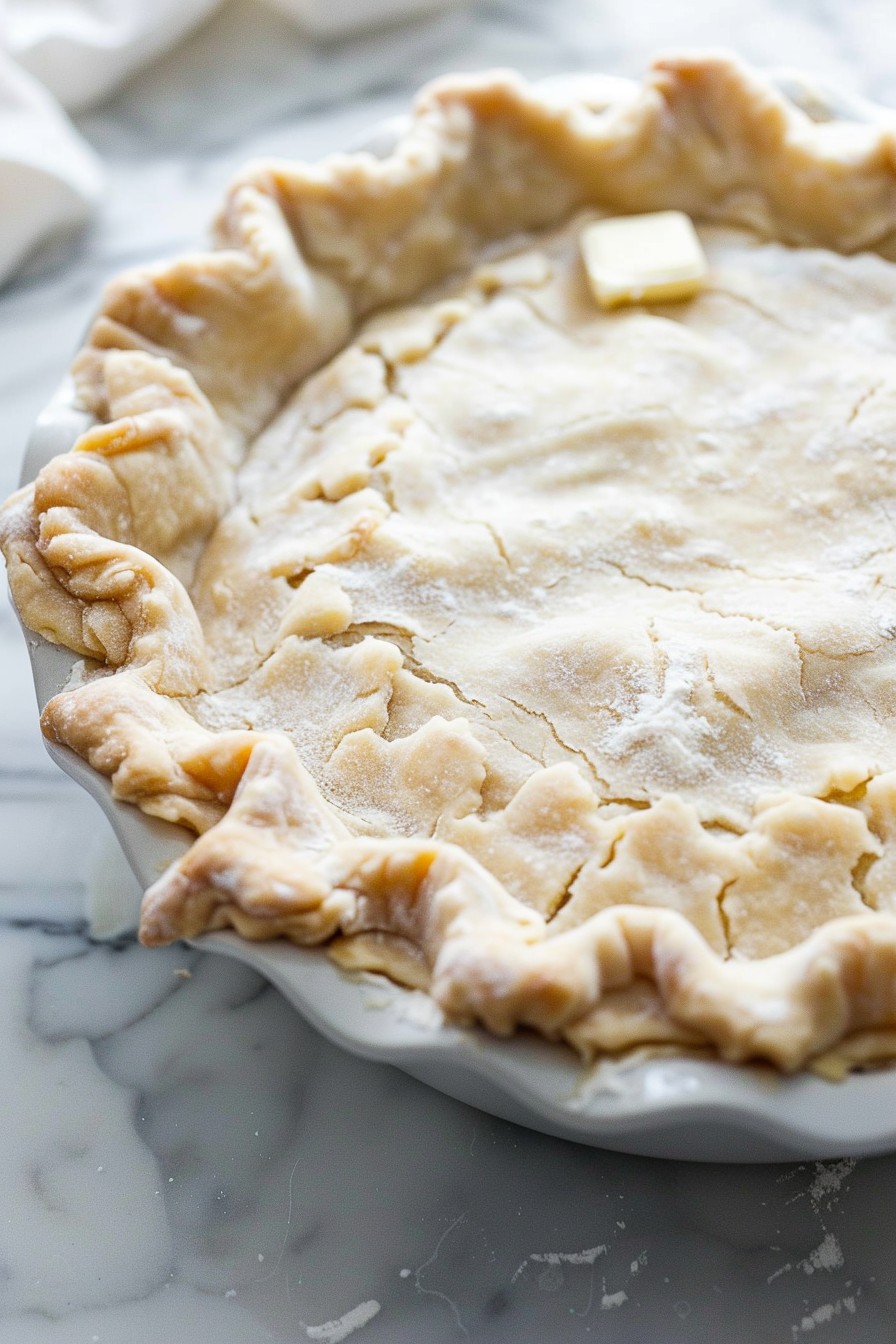Baking the perfect pie crust is an art form, and this recipe is your masterpiece in the making. Combining butter for flavor and shortening for flakiness, this crust is the foundation of every memorable pie.
Why This Recipe Works
- The combination of butter and shortening gives you the best of both worlds: incredible flavor and unbeatable flakiness.
- Chilling the dough before rolling it out prevents shrinkage during baking, ensuring a perfect fit for your pie plate.
- Using ice water keeps the fats cold, which is crucial for achieving those desirable flaky layers.
Ingredients
- 1 1/4 cups all-purpose flour
- 1/2 teaspoon salt
- 1/2 teaspoon sugar
- 1/4 cup unsalted butter, chilled and diced
- 1/4 cup shortening, chilled
- 3-4 tablespoons ice water
Equipment Needed
- Large mixing bowl
- Pastry cutter or fork
- Plastic wrap
- Rolling pin
- 9-inch pie plate
Instructions

Step 1: Mix Dry Ingredients
In a large bowl, whisk together the flour, salt, and sugar. This ensures your pie crust has a uniform flavor throughout. Tip: Sifting the flour can make your crust even lighter.
Step 2: Cut in Fats
Add the chilled butter and shortening to the dry ingredients. Use a pastry cutter or fork to cut them in until the mixture resembles coarse crumbs. The key here is to leave some larger pieces of fat for flakiness.
Step 3: Add Ice Water
Sprinkle ice water over the mixture, one tablespoon at a time, stirring gently after each addition. Stop when the dough just comes together. Overworking the dough can make it tough.
Step 4: Chill the Dough
Form the dough into a disk, wrap it in plastic, and chill for at least 1 hour. This step is crucial for easy rolling and prevents shrinkage. Tip: If you’re in a hurry, 30 minutes in the freezer can substitute.
Step 5: Roll and Fit
On a floured surface, roll the dough into a 12-inch circle. Carefully transfer it to your pie plate, trim the edges, and crimp as desired. Chill again before baking to ensure flakiness.
Tips and Tricks
For those looking to elevate their pie crust game, consider these advanced tips. First, grating frozen butter into the flour can make incorporating it easier and more uniform. Second, using vodka instead of some of the water can reduce gluten formation, making the crust more tender. Lastly, blind baking your crust with weights can prevent puffing if you’re making a custard pie.
Recipe Variations
- For a savory twist, add grated cheese and herbs to the dough.
- Swap out half the flour for whole wheat flour for a nuttier flavor and added texture.
- Add a tablespoon of cocoa powder to the dry ingredients for a chocolate crust, perfect for cream pies.
Frequently Asked Questions
Can I use all butter instead of shortening?
Yes, you can use all butter for a richer flavor, but the crust may not be as flaky. Shortening has a higher melting point, which helps create those distinct layers.
How do I prevent my crust from getting soggy?
Blind baking the crust or brushing it with egg white before adding wet fillings can create a barrier against sogginess.
Can I make the dough ahead of time?
Absolutely! The dough can be refrigerated for up to 3 days or frozen for up to 3 months. Just thaw in the fridge overnight before using.
Summary
This pie crust recipe strikes the perfect balance between flavor and flakiness, making it the ideal base for any pie. With a few simple tips and tricks, you’ll be on your way to pie perfection.